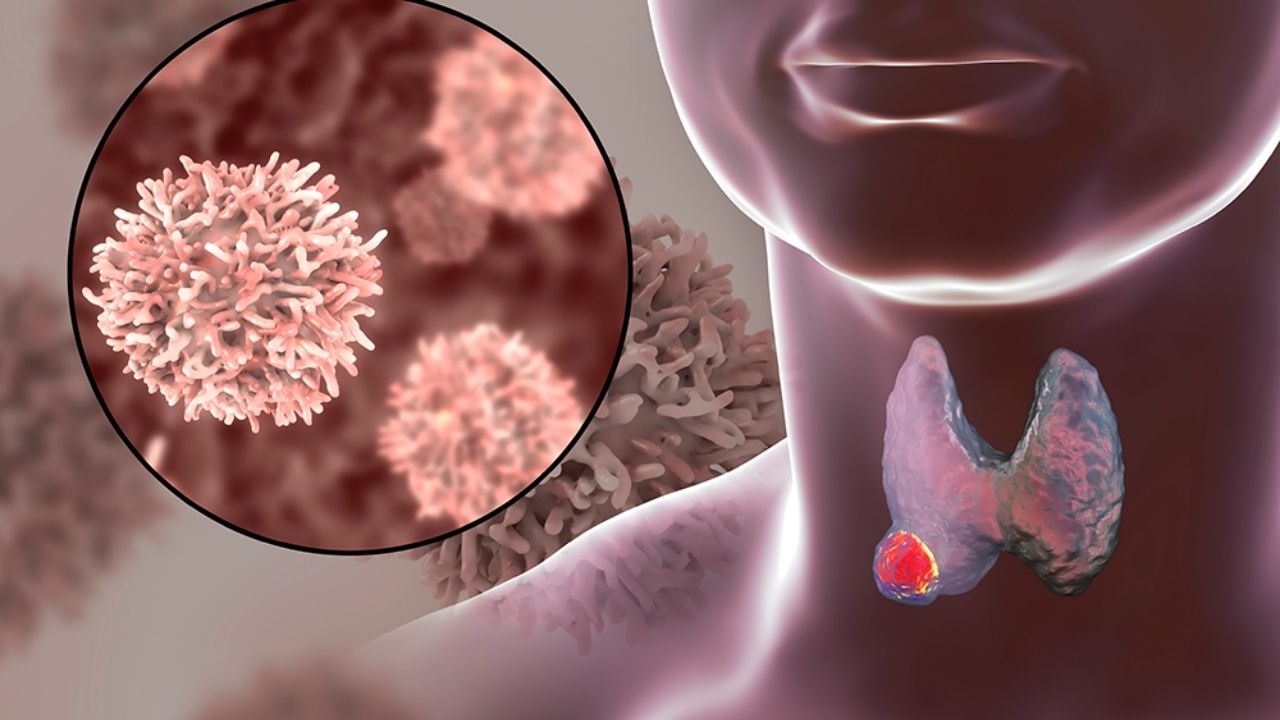The butterfly-shaped thyroid gland is situated at the front of the neck. Its main function is to produce thyroid hormones to regulate metabolism, blood pressure, and body temperature. When compared to other forms of cancers, thyroid cancer is very rare.
Thyroid Cancer Symptoms
Lump on the neck – If the lump gets large enough, patients find problems in swallowing and breathing, hoarseness, and cough.
Risk factors
Family history of thyroid cancer
Genetic mutations and radiation exposure
It's more common in females.
Its classification is based on the types of cells found in tumors.
Differentiated thyroid cancer – Papillary thyroid cancer is the most common type of this. It’s slow-growing cancer. This can spread to the surrounding lymph nodes but they do respond well. Follicular thyroid cancer is the second most common cancer of this type. It has a higher risk of spreading out to bones, lungs but has a good prognosis.
Medullary thyroid cancer – It is more because of genetic reasons and runs in the family. It is linked to some genetic endocrine syndrome. Early diagnosis of this cancer in stages I and II (before it spreads) can increase the effectiveness of treatment.
Anaplastic thyroid cancer – This is the most aggressive type of cancer. It is a rapidly growing cancer and responds poorly to treatment.
Diagnosis
After the detection of nodule or lump, the biopsy is performed and cells of lumps are examined under a microscope. Around 4/5th of thyroid nodules are benign; it means they are non-cancerous. Only a small fraction are malignant cancer.
Thyroid Cancer Treatment
Thyroid cancer can be treated but the effectiveness of treatment purely depends on the stage at which it is being presented. If the cancer is small and has a low risk of spreading, in this case, it is being monitored regularly and not treated right away.
Surgery for thyroid cancer – Removal of thyroid glands and nearby lymph nodes.
Besides surgery, radioactive iodine treatment, external beam radiation, alcohol ablation, and chemotherapy are other treatment options based on the type and stage of cancer.
Disclaimer: The content on this site is for informational purposes only, and should not be taken as professional medical advice. Always seek the guidance of your doctor or other health professionals for any questions you may have regarding your health or a medical condition.

 The butterfly-shaped thyroid gland is situated at the front of the neck. Thyroid cancer is very rare. Thyroid cancer can be treated but the effectiveness of treatment purely depends on the stage at which it is being presented.
The butterfly-shaped thyroid gland is situated at the front of the neck. Thyroid cancer is very rare. Thyroid cancer can be treated but the effectiveness of treatment purely depends on the stage at which it is being presented.










.jpeg)


.jpeg)



.jpeg)
.jpeg)






.jpeg)





